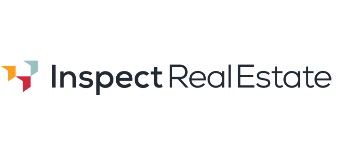How to start your own real estate agency in Australia
It can be challenging to begin a real estate agency in Australia, but having the proper resources and information can make it a successful and profitable profession. One important aspect to consider when starting your own real estate agency is the property management software you will use to manage and streamline your business operations.
Learn more about IREOne
Real Estate Software for New Agencies
The Inspect Real Estate IREOne Start-Up Package is a comprehensive property management software solution designed specifically for new real estate agencies in Australia. With everything you need to get your agency off the ground, the IREOne package includes tools for property listings, sales and leasing, property inspections, and more.
Not only does the IREOne package make it easier to manage your real estate agency, it also helps you save time and money by streamlining your processes and eliminating the need for multiple software solutions. Plus, with its user-friendly interface and top-notch customer support, you can be up and running in no time.
But don’t just take our word for it – why not see for yourself how the IREOne package can benefit your real estate agency? Simply fill in the form below to book a demo and see first-hand how our property technology software can help you succeed in the competitive world of real estate.
So, if you’re ready to take the first step in starting your own real estate agency in Australia, be sure to consider the Inspect Real Estate IREOne Start-Up Package as your go-to property management software solution.
IRE Powers Top Real Estate Agencies
Starting up a new agency & need software?
IREOne is perfect for startup agencies.
Book a FREE consultation now
Frequently Asked Questions
What are the qualifications required to start a real estate agency in Australia?
In order to start a real estate agency in Australia, you must have a real estate licence. In order to obtain a real estate licence, you must complete the necessary education and training, as well as pass a licensing exam.
What are the steps involved in starting a real estate agency in Australia?
The steps involved in starting a real estate agency in Australia include:
- Obtain a real estate licence by completing the necessary education and training and passing the licensing exam.
- Choose a business structure (e.g. sole trader, partnership, or company) and register your business with the appropriate government agencies.
- Obtain any necessary licences or permits (e.g. building, health, and safety licences).
- Set up a business plan and budget.
- Choose a location for your agency and set up an office.
- Hire staff and/or contractors as needed.
- Market your agency and start building your client base.
How much does it cost to start a real estate agency in Australia?
The cost of starting a real estate agency in Australia will depend on various factors such as the location of the agency, the size of the agency, and the type of business structure chosen. Some of the expenses that you may incur when starting a real estate agency in Australia include:
- Education and training costs to obtain a real estate licence.
- Business registration fees.
- Rent or purchase of office space.
- Marketing and advertising costs.
- Staff salaries or contractor fees.
- Insurance and other business expenses.
How do I market my real estate agency in Australia?
There are many ways to market your real estate agency in Australia, including:
- Building a website and maintaining an active social media presence.
- Networking with other professionals in the real estate industry.
- Participating in local events and sponsorships.
- Advertising in local newspapers, magazines, and online platforms.
- Offering competitive commission rates and services to attract clients.
- Building relationships with local businesses and community organisations.
What are some challenges that I may face when starting a real estate agency in Australia?
Some challenges that you may face when starting a real estate agency in Australia include:
- Competition from other real estate agencies.
- Obtaining a sufficient number of clients to sustain the business.
- Managing and motivating staff or contractors.
- Keeping up with industry trends and regulations.
- Dealing with difficult clients or challenging property sales.



